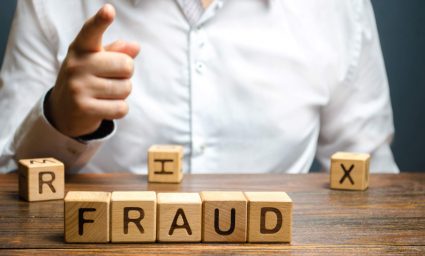 Experiencing financial hardships can be an incredibly daunting ordeal, often leaving individuals feeling vulnerable and desperate for solutions to improve their circumstances. The daily challenge of managing expenses can make seemingly generous financial offers appear alluring and hard to resist. While we continuously advise against taking high-interest payday loans or incurring excessive credit debt, it’s vital to maintain a level of caution even when faced with what seem to be legitimate financial assistance opportunities. Frequently, the funds that seem to be readily available are actually cleverly disguised traps set by unscrupulous scammers aiming to exploit your financial vulnerability.
Experiencing financial hardships can be an incredibly daunting ordeal, often leaving individuals feeling vulnerable and desperate for solutions to improve their circumstances. The daily challenge of managing expenses can make seemingly generous financial offers appear alluring and hard to resist. While we continuously advise against taking high-interest payday loans or incurring excessive credit debt, it’s vital to maintain a level of caution even when faced with what seem to be legitimate financial assistance opportunities. Frequently, the funds that seem to be readily available are actually cleverly disguised traps set by unscrupulous scammers aiming to exploit your financial vulnerability.
Currently, there is a vast array of scams meticulously designed to target individuals grappling with financial vulnerabilities, emphasizing the importance of remaining vigilant and well-informed. A fundamental principle for recognizing scams is simple: if an offer appears too good to be true, it likely is. In this extensive guide, we will elaborate on various scams that specifically target individuals facing financial difficulties, equipping you with the knowledge and awareness necessary to differentiate between authentic opportunities and deceptive schemes.
Protecting Your Tax Refund Claims: Understand Your Rights and Responsibilities
There are legitimate avenues through which you can claim tax refunds for a range of expenses, including costs related to work tools, uniforms, and mileage. However, these processes often necessitate that you engage with a tax rebate services company, which requires granting them access to your tax records. It's crucial to understand that no governmental agency, including HMRC, can accurately determine the refund you might be entitled to without your active participation or consultation with a qualified accountant. Therefore, it is essential to exercise caution when receiving unsolicited messages claiming that “HMRC has a tax refund of £261 waiting for you.” Such messages often feature realistic sums, skillfully avoiding the outrageous claims typical of other scams, like the infamous Nigerian Prince schemes. Instead, these messages can lead you to websites where you might unintentionally share sensitive information, resulting in identity theft or significant financial loss.
To determine whether such communications are fraudulent, meticulously examine the sender's details. If you receive a text message, verify the originating phone number to confirm its legitimacy. It is advisable to refrain from responding to such messages and instead consider contacting HMRC directly for verification. Understand that HMRC usually communicates through letters or emails sent to your registered address, rather than through unsolicited text messages. Furthermore, you now possess the ability to access your own online tax account, where you can directly view notifications from HMRC. If you receive an email, scrutinize the sender’s address carefully; it should originate from an official HMRC domain. Always be cautious and avoid clicking on any links included in suspicious messages.
Identifying and Steering Clear of the National Insurance Number Scam
Recent reports, including those from the Daily Express, highlight that many individuals have become victims of the National Insurance scam, which primarily operates through phone calls. This approach is notably different from many others, as scammers may reach you on either your landline or mobile device. The scam often begins with an alarming message claiming that your national insurance number has been compromised. This distressing tactic is specifically designed to instill a sense of urgency and compel you to press a button to speak with someone who can assist you. However, this action frequently results in incurring premium charges for the call while the scammers collect your personal information.
To ascertain whether such a call is legitimate or a scam, remember that authentic organizations will never request that you press a button to continue the conversation. If you find yourself uncertain, simply hang up and perform a quick online search for the phone number. A brief investigation can often reveal whether the number is linked to known scams, allowing you to safeguard yourself effectively.
Spotting and Avoiding the DPD or UPS Delivery Scam
Another common scam involves receiving unsolicited texts or emails indicating that a parcel is awaiting your action. These messages typically urge you to click on a link to provide personal information, which is a significant warning sign of potential fraud. To protect yourself, carefully evaluate the source of the email. Scammers often utilize distorted or unusual email addresses that do not correspond with established businesses. Additionally, check any recent orders you’ve placed on platforms like Amazon or eBay; these platforms usually provide comprehensive tracking information for your convenience.
It is also essential to remember that while carriers like DHL may impose duties on international orders, they will always furnish you with specific details regarding your shipment and its origin. If you receive vague messages about package deliveries without having placed prior orders, exercise extreme caution. Staying informed about personal finance scams is vital to protect yourself from falling victim to such schemes. If financial struggles make these scams seem appealing, consider reaching out to us; we may assist you with our debt consolidation loans for bad credit. We are here to help you navigate your financial challenges securely.
The Article Finance Scams to Watch Out For Was Found On https://limitsofstrategy.com


Comments are closed